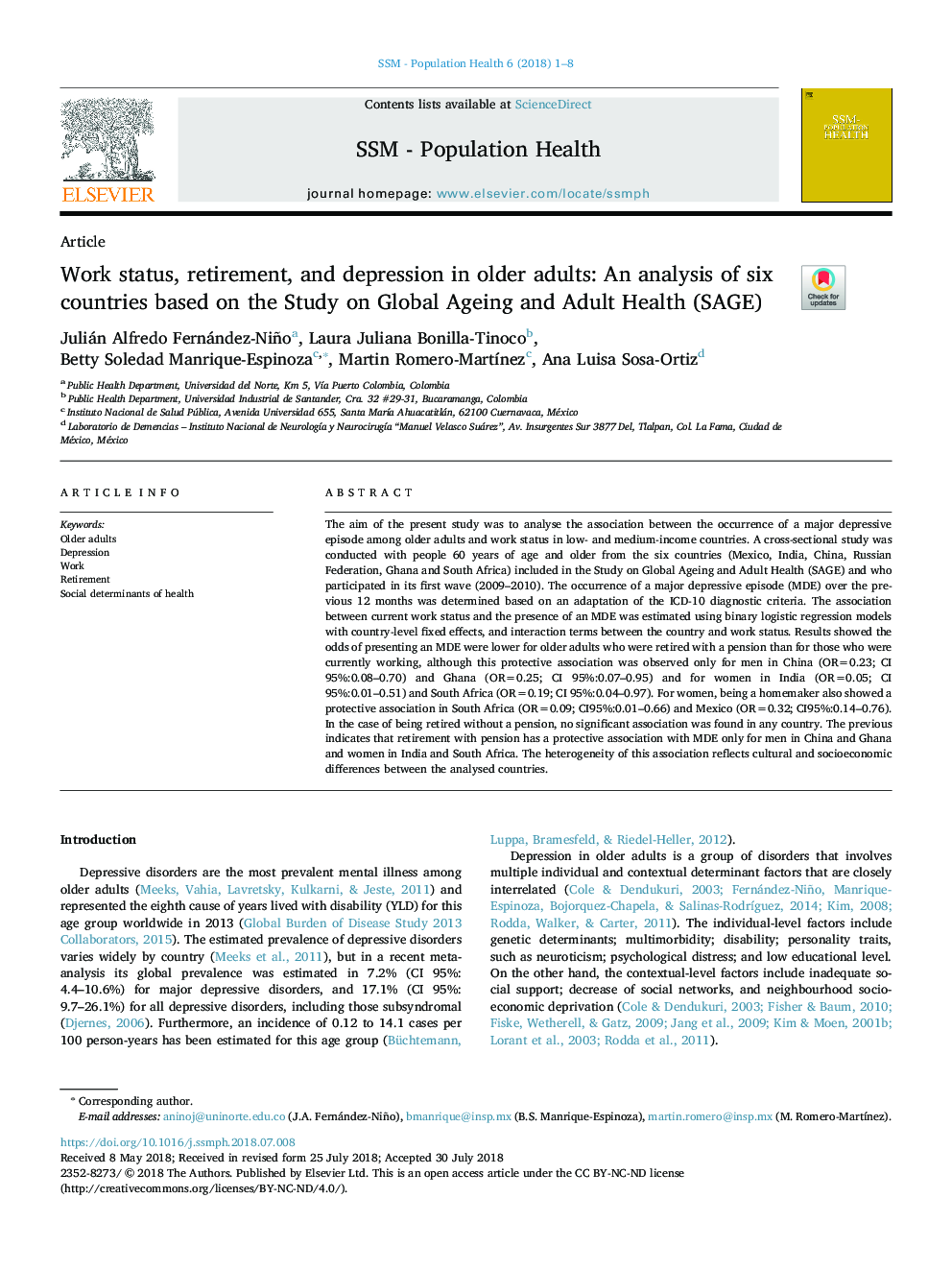| Article ID | Journal | Published Year | Pages | File Type |
|---|---|---|---|---|
| 7527888 | SSM - Population Health | 2018 | 8 Pages |
Abstract
The aim of the present study was to analyse the association between the occurrence of a major depressive episode among older adults and work status in low- and medium-income countries. A cross-sectional study was conducted with people 60 years of age and older from the six countries (Mexico, India, China, Russian Federation, Ghana and South Africa) included in the Study on Global Ageing and Adult Health (SAGE) and who participated in its first wave (2009-2010). The occurrence of a major depressive episode (MDE) over the previous 12 months was determined based on an adaptation of the ICD-10 diagnostic criteria. The association between current work status and the presence of an MDE was estimated using binary logistic regression models with country-level fixed effects, and interaction terms between the country and work status. Results showed the odds of presenting an MDE were lower for older adults who were retired with a pension than for those who were currently working, although this protective association was observed only for men in China (OR=0.23; CI 95%:0.08-0.70) and Ghana (OR=0.25; CI 95%:0.07-0.95) and for women in India (OR=0.05; CI 95%:0.01-0.51) and South Africa (OR=0.19; CI 95%:0.04-0.97). For women, being a homemaker also showed a protective association in South Africa (OR=0.09; CI95%:0.01-0.66) and Mexico (OR=0.32; CI95%:0.14-0.76). In the case of being retired without a pension, no significant association was found in any country. The previous indicates that retirement with pension has a protective association with MDE only for men in China and Ghana and women in India and South Africa. The heterogeneity of this association reflects cultural and socioeconomic differences between the analysed countries.
Related Topics
Social Sciences and Humanities
Social Sciences
Health
Authors
Julián Alfredo Fernández-Niño, Laura Juliana Bonilla-Tinoco, Betty Soledad Manrique-Espinoza, Martin Romero-MartÃnez, Ana Luisa Sosa-Ortiz,
